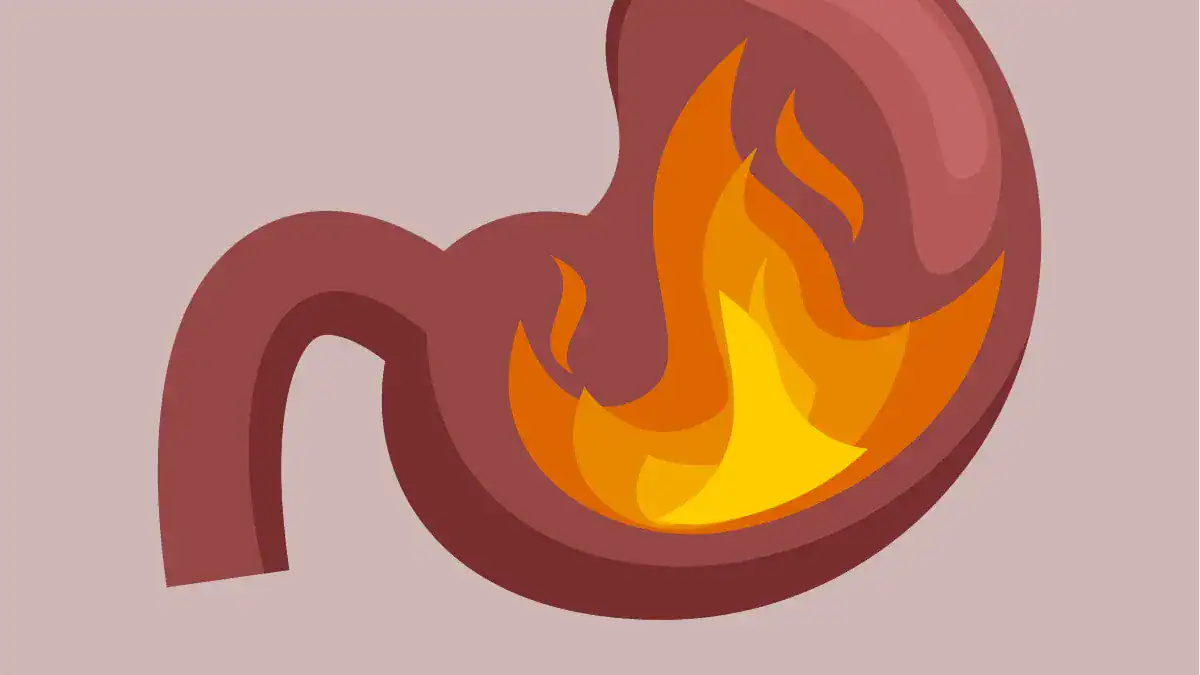
Stomach pain accompanied by sweating can be a critical indicator of a serious medical emergency. You should never ignore these combined symptoms. Abdominal pain accounts for 7–10% of all Emergency Department visits, highlighting its common but often serious nature.
When you experience stomach pain and sweating together, your body sends urgent warning signs. This combination often signals internal distress. You need timely medical attention. This is a serious symptom. For example, severe stomach pain and sweating can be urgent warning signs of a heart attack. These symptoms demand immediate evaluation.
Key Takeaways
Stomach pain and sweating together are urgent warning signs. They mean you need medical help right away.
This combination can signal serious problems. These include a heart attack, appendicitis, or pancreatitis.
Look for other critical symptoms. These include radiating pain, trouble breathing, fever, or blood in vomit or stool.
Do not wait to get medical help. Early treatment can save your life.
Go to the emergency room if you have these symptoms. Doctors will check you and do tests to find the problem.
Stomach Pain And Sweating: The Urgent Link

Why This Combination Is A Red Flag
When you experience stomach pain along with sweating, your body sends a critical message. This combination is a significant red flag. It tells you that something serious might be happening inside.
Your body has ways to signal distress. When internal organs face severe problems, these signals become very clear. You should pay close attention to these signs. They often point to an urgent medical need.
Body’s Response To Internal Distress
Your body reacts strongly to severe internal distress. This reaction involves your sympathetic nervous system. This system prepares your body for “fight or flight.” Visceral pain, which comes from your internal organs like your stomach, often triggers autonomic features.
Sweating is one of these features. When you feel intense abdominal pain, your sympathetic nervous system can become overactive. This hyperactivity causes excessive sweating.
Distress signals travel between your sympathetic nervous system and your brain. This activates your body’s fight or flight instinct. This activation leads to several symptoms. You might notice an increased heart rate or faster breathing. Sweating is also a key part of this response.
Your body is trying to cope with the severe internal pain. This physiological response is a clear warning. It shows your body is under significant stress.
Urgent Conditions: Stomach Pain & Sweating
When you experience stomach pain and sweating, you need to understand that these symptoms can point to several life-threatening conditions. Recognizing these urgent situations quickly can save your life.
Heart Attack Mimicking Stomach Pain
You might not think of a heart attack when you feel stomach pain, but it is a critical possibility. A heart attack can present with atypical symptoms, often mimicking less serious issues. About half of heart attacks show these unusual signs. You might experience discomfort in your upper-body areas, including your stomach. You could also break into a cold sweat.
Heart attack pain can spread to your upper stomach area, left shoulder, and arm. This pain may worsen with even minor activity. You might also feel a vague restlessness, nervousness, or a deep sense of dread.
Other accompanying symptoms include cold sweat, light-headedness, dizziness, fatigue, weakness, nausea, vomiting, pain in your shoulder, neck, arms, back, teeth, or jaw. You might also have chest pain or pressure, breathing problems, and clammy skin.
Characteristic | Heart Attack Pain | Typical Stomach Pain |
|---|---|---|
Relation to Physical Activity | Worsens with physical activities | Usually unrelated to physical activities |
Accompanying Symptoms | Cold sweat, palpitations, light-headedness, nausea/vomiting, pain in upper body/arms, shortness of breath | Bloating, burping, knotted stomach, sharp pains that come and go; may subside after belching or passing gas |
Persistence | Abdominal pain persists, especially with shortness of breath or nausea | May subside after belching or passing gas |
If you have persistent abdominal pain, especially with shortness of breath or nausea, seek immediate medical help.
Acute Appendicitis
Acute appendicitis is another urgent condition. You will often feel sudden, severe pain. This pain typically starts around your navel and then moves to your lower right abdomen. This is a classic sign.
The pain intensifies over about 24 hours, becoming constant and sharp. You might also lose your appetite, feel constipated, or experience nausea.
When a doctor examines you, they will find localized tenderness and muscle rigidity in your lower right abdomen. Moving or coughing can make the pain worse. Appendicitis is most common in individuals aged 10 to 19 years.
The risk of your appendix rupturing increases significantly if you delay treatment. The average rate of perforation is between 16% and 36% after the first 36 hours from when symptoms begin. This risk increases by 5% for every subsequent 12-hour period.
Pancreatitis
Pancreatitis is inflammation of your pancreas. This condition causes severe upper abdominal pain. This pain often radiates to your back. Gallstones or heavy alcohol consumption are leading causes. Gallstones can block the bile duct, causing digestive enzymes to accumulate and damage your pancreas. Excessive alcohol can also activate these enzymes.
The pain from acute pancreatitis is constant and severe. It can last for 3 to 7 days until the inflammation goes down. Changing positions or resting usually does not bring relief.
You might find the pain feels worse when you lie flat, cough, exercise, or eat more. Sitting upright, leaning forward, or curling into a ball might offer some comfort. The abdomen may be tender to the touch. Severe acute pancreatitis has a mortality rate of 16.3%. Many deaths occur within 14 days due to organ failure.
Ectopic Pregnancy
An ectopic pregnancy occurs when a fertilized egg implants outside your uterus, usually in a fallopian tube. This is a medical emergency. You might experience a missed period, abdominal pain or cramping (especially on one side), vaginal spotting or bleeding, and nausea and vomiting.
Risk factors include a previous ectopic pregnancy, pelvic infections, fertility treatments, or a history of tubal surgery. If you experience severe abdominal or pelvic pain (sharp, sudden, on one side, possibly radiating to your shoulder, neck, or back), heavy vaginal bleeding, dizziness, fainting, or shoulder tip pain, you need immediate medical attention. Ectopic pregnancy is the leading cause of death for women in the first trimester, accounting for 9%–14% of these deaths.
Aortic Aneurysm Rupture
An aortic aneurysm rupture is a life-threatening event. It involves a tear in your aorta, the body’s main artery. You will experience sudden, severe pain. This pain can be in your abdomen, chest, lower back, or legs. You might also have a rapid heartbeat, dizziness, fainting, nausea, vomiting, shortness of breath, and clammy, sweaty skin.
Men and Caucasians are at higher risk for abdominal aortic aneurysms. The risk also increases with age. Only about one in five patients survive a ruptured abdominal aortic aneurysm. The in-hospital mortality rate for ruptured abdominal aortic aneurysm repair is 42%. The 5-year survival expectancy is 41%.
Critical Accompanying Symptoms

When stomach pain and sweating occur, other symptoms can make the situation even more urgent. You must recognize these additional signs. They often mean you need immediate medical help.
Radiating Pain
Sometimes, the pain you feel does not stay in one spot. It spreads to other areas of your body. This is called radiating pain. When internal organs hurt, you might not pinpoint the exact source.
The pain can feel broad, like in the body wall around the organ. It can also appear in other areas that share the same nerve connections to your spinal cord. Doctors call this “referred pain.” For example, heart pain might feel like it is in your chest, left arm, or jaw. This happens because these areas share nerve pathways.
Visceral pain, which comes from your internal organs, is often poorly localized. It can spread to other body parts. This type of pain is diffuse and hard to locate. It often comes with other symptoms like vomiting, sweating, or a racing heart.
It can also make you sensitive in the affected area or elsewhere. Conditions like pancreatitis can cause severe upper abdominal pain that spreads to your back. Kidney stones can cause pain in your abdomen or sides, which may spread to your groins. This pain often comes and goes.
Shortness of Breath or Difficulty Breathing
Experiencing shortness of breath or difficulty breathing along with stomach pain is a serious sign. Your abdomen can swell and become tight. This is called abdominal distension.
When your abdomen swells, it can press against your diaphragm. The diaphragm is a muscle that helps you breathe. Its up-and-down movements are vital for proper breathing. If your abdomen pushes on it, your diaphragm cannot move well. This makes breathing difficult.
You might also notice other symptoms like decreased urine output or new abdominal pain.
Many conditions can cause both shortness of breath and stomach pain. These include anxiety, panic attacks, and chronic obstructive pulmonary disease (COPD). Irritable Bowel Syndrome (IBS), celiac disease, and constipation can also cause these symptoms. If you have severe abdominal pain, vomiting that lasts more than a day, or difficulty breathing, you need immediate medical attention.
High Fever and Chills
A high fever and chills with stomach pain often signal an infection or serious inflammation. Your body is fighting something off. Gastroenteritis, also known as the stomach flu, can cause diarrhea, headache, low-grade fever or chills, and stomach cramps. Salmonella infection, from contaminated food, also brings high fever or chills, stomach cramps, and vomiting.
Urinary tract infections (UTIs) can cause fever or chills, along with pain in your pelvis or back that might spread to your abdominal area. Kidney stones can cause fever and chills if an infection is present. Other conditions include prostatitis, mononucleosis, and pneumonia.
Gallbladder inflammation (cholecystitis) often causes abdominal pain, high fever, and chills. Pelvic inflammatory disease (PID) and appendicitis can also present with fever and chills. If you have severe and sudden stomach pain with vomiting or chills, you need an emergency room visit right away.
Blood in Vomit or Stool
Seeing blood in your vomit or stool is always an emergency. The appearance of the blood tells you where the bleeding might be.
If your vomit looks like coffee grounds, it means you have internal bleeding in your upper digestive tract. This includes your esophagus, stomach, or the first part of your small intestine. The blood has been there long enough to coagulate. This is a medical emergency.
Bright red blood in your stool is called hematochezia. It usually comes from your lower digestive tract. Black, tarry stools, called melena, mean blood has traveled through your digestive system.
Digestive enzymes break down the blood, making it dark. Many conditions can cause bleeding. These include Crohn’s disease, diverticulitis, and various cancers. Bleeding ulcers in your stomach or small intestine are also common causes.
Severe Nausea, Vomiting, Diarrhea
Severe nausea, vomiting, and diarrhea are more than just uncomfortable. They can lead to serious problems. Your body loses a lot of fluid. This can cause dehydration. Dehydration can harm your cells, tissues, and organs.
It can even lead to shock or death if not treated. While you can manage mild dehydration at home, severe dehydration needs emergency medical care in a hospital.
These symptoms are often part of a group called ‘sickness symptoms.’ They can include fatigue, loss of appetite, and irritability. Your immune system, when active, tries to limit nutrients to pathogens.
This can make you feel weak. Conditions like mesenteric ischemia cause severe pain, nausea, and sometimes bloody diarrhea. Appendicitis and pancreatic cancer can also cause severe nausea, vomiting, and diarrhea.
Dizziness or Fainting
Dizziness or fainting with stomach pain is a critical sign. It means your body is not getting enough blood or oxygen to your brain. This can happen for many reasons. You might experience dizziness and stomach pain after eating due to a sudden drop in blood pressure. This is called postprandial hypotension. Your body sends more blood to your digestive system. Your heart may not pump enough blood to other areas. This can cause dizziness, stomach pain, and even blurred vision.
Gastric ulcers, which are open sores in your stomach lining, can also cause dizziness if they bleed.
Blood loss can lead to dizziness. Many serious conditions can cause dizziness or fainting with stomach pain. These include appendicitis, ectopic pregnancy, pancreatitis, and gastrointestinal bleeding.
An abdominal aortic aneurysm can also cause these symptoms. If you experience severe dizziness or fainting with abdominal pain, you need an emergency room. This is an emergency symptom that requires immediate attention.
Persistent or Worsening Pain
Any stomach pain that does not improve or gets worse over time is a major concern. This is especially true if it lasts for more than a few hours.
If you cannot pass stool, or if you have difficulty staying hydrated, these are also urgent signs. Persistent pain means your body is under continuous stress. It could indicate a worsening condition or a new problem. Do not ignore pain that continues to bother you or becomes more intense. It is a clear signal that you need professional medical evaluation.
When To Seek Emergency Care
Recognizing Emergency Situations
You must recognize when your symptoms signal an emergency. If you experience stomach pain along with sweating, you need immediate attention. This is especially true if you have other critical symptoms.
These include radiating pain, shortness of breath, high fever, chills, or blood in your vomit or stool. Dizziness, fainting, or persistent worsening pain also mean you need help. These combinations are urgent warning signs. They tell you to seek professional medical care right away. This is a true medical emergency.
Do Not Delay Medical Help
Do not delay medical help. Waiting can make serious conditions much worse. For example, a ruptured appendix or an aortic aneurysm rupture needs quick treatment. Every minute counts in these situations. You must trust your instincts. If you feel something is seriously wrong, act immediately. Your health is too important to wait.
What To Expect At The ER
When you arrive at the hospital emergency room, medical staff will assess you quickly. They will check your vital signs and ask about your symptoms. Doctors will perform examinations. They will order diagnostic tests. These tests help them find the cause of your symptoms.
You might wonder about wait times. Here is what you can expect for abdominal pain cases:
Group | Mean Time in ED Bed (minutes) | Mean Total ED Time (minutes) |
|---|---|---|
RME+WRDT | 245 | 460 |
RME-only | 277 | 504 |
Doctors often order many tests. Patients with abdominal pain often receive several types of diagnostic studies. These include blood tests, urine tests, X-rays, CT scans, and ultrasounds. These tests help doctors make an accurate diagnosis. The goal is to get you the right treatment quickly. The hospital staff works to ensure your safety. They provide the best care possible at the hospital.
Stomach pain and sweating are urgent warning signs. These symptoms, especially when combined with others like fever or radiating pain, demand immediate medical evaluation. You must recognize these critical indicators. They point to serious conditions such as a heart attack or appendicitis. Do not hesitate to seek emergency care if you experience these urgent warning signs. Trust your instincts. Early diagnosis and treatment can save your life.



